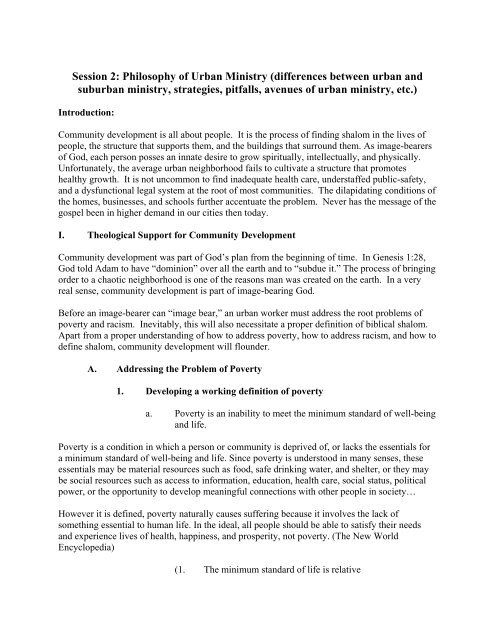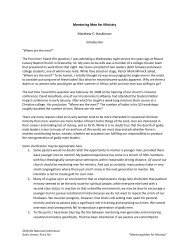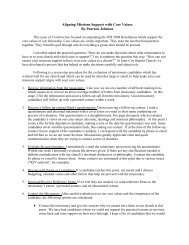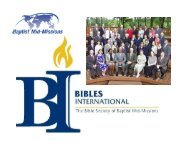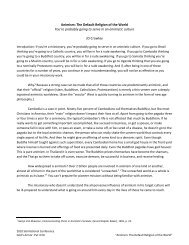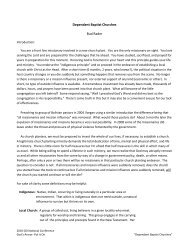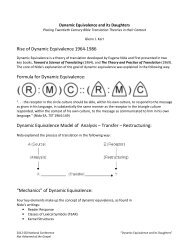Session 1: Why Urban Ministry - Missions Mandate
Session 1: Why Urban Ministry - Missions Mandate
Session 1: Why Urban Ministry - Missions Mandate
You also want an ePaper? Increase the reach of your titles
YUMPU automatically turns print PDFs into web optimized ePapers that Google loves.
<strong>Session</strong> 2: Philosophy of <strong>Urban</strong> <strong>Ministry</strong> (differences between urban and<br />
suburban ministry, strategies, pitfalls, avenues of urban ministry, etc.)<br />
Introduction:<br />
Community development is all about people. It is the process of finding shalom in the lives of<br />
people, the structure that supports them, and the buildings that surround them. As image-bearers<br />
of God, each person posses an innate desire to grow spiritually, intellectually, and physically.<br />
Unfortunately, the average urban neighborhood fails to cultivate a structure that promotes<br />
healthy growth. It is not uncommon to find inadequate health care, understaffed public-safety,<br />
and a dysfunctional legal system at the root of most communities. The dilapidating conditions of<br />
the homes, businesses, and schools further accentuate the problem. Never has the message of the<br />
gospel been in higher demand in our cities then today.<br />
I. Theological Support for Community Development<br />
Community development was part of God’s plan from the beginning of time. In Genesis 1:28,<br />
God told Adam to have “dominion” over all the earth and to “subdue it.” The process of bringing<br />
order to a chaotic neighborhood is one of the reasons man was created on the earth. In a very<br />
real sense, community development is part of image-bearing God.<br />
Before an image-bearer can “image bear,” an urban worker must address the root problems of<br />
poverty and racism. Inevitably, this will also necessitate a proper definition of biblical shalom.<br />
Apart from a proper understanding of how to address poverty, how to address racism, and how to<br />
define shalom, community development will flounder.<br />
A. Addressing the Problem of Poverty<br />
1. Developing a working definition of poverty<br />
a. Poverty is an inability to meet the minimum standard of well-being<br />
and life.<br />
Poverty is a condition in which a person or community is deprived of, or lacks the essentials for<br />
a minimum standard of well-being and life. Since poverty is understood in many senses, these<br />
essentials may be material resources such as food, safe drinking water, and shelter, or they may<br />
be social resources such as access to information, education, health care, social status, political<br />
power, or the opportunity to develop meaningful connections with other people in society…<br />
However it is defined, poverty naturally causes suffering because it involves the lack of<br />
something essential to human life. In the ideal, all people should be able to satisfy their needs<br />
and experience lives of health, happiness, and prosperity, not poverty. (The New World<br />
Encyclopedia)<br />
(1. The minimum standard of life is relative


